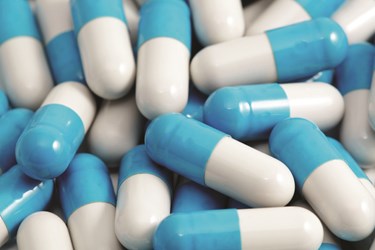FDA News Roundup: Shire, Bristol-Myers Squibb, Alexion, And More
By Anna Rose Welch, Editorial & Community Director, Advancing RNA

Atara Bio, MSK Granted Breakthrough Therapy Designation
Atara Biotherapeutics and Memorial Sloan Kettering Cancer Center have received breakthrough therapy designation for their cytotoxic T lymphocytes activated against Epstein-Barr Virus (EBV-CTL) for patients with rituximab-refractory, EBV-associated lymphoproliferative disease (EBV-LPD). EBV-CTL is responsible for seeking out cancer cells and killing them. MSK has investigated the treatment in two clinical trials in the hopes of providing patients with an “off-the-shelf” allogeneic, cell therapy approach for patients with EBV-LPD.
Asfotase Alfa Wins Priority Review
Alexion’s BLA for infantile- and juvenile-onset hypophosphatasia (HPP) treatment Asfotase Alfa was accepted for priority review from the FDA last week. The drug, a first-in-class enzyme replacement therapy, has been investigated in 71 patients in three studies, as well as in two natural history studies. Should the drug get the final nod from the FDA, it will be the first treatment for HPP. Asfotase Alpha previously received breakthrough therapy designation, and Alexion has been submitting its BLA on a rolling basis since April 2014.
Boehringer Ingelheim Submits BLA
Following a breakthrough therapy designation in June 2014, Boehringer Ingelheim has announced the submission of a biologics license application to the FDA for idarucizumab, an antidote to dabigatran. The company hopes to have the drug accepted for an accelerated approval pathway. Idarucizumab is a humanized antibody fragment being examined in the Phase 3 RE-VERSE AD study for those who need to reverse dabigatran’s anticoagulant effect. The drug’s performance in a Phase 1 clinical trial showed that it was capable of reversing dabigatran’s anticoagulant effect.
Shire Files NDA For Dry Eye Treatment
Shire’s NDA is for Lifitegrast for adults suffering from dry eye disease. Included in the application are the results from four clinical trials — one Phase 2, two Phase 3 efficacy and safety studies, and one long-term Phase 3 safety trial — enrolling over 1,800 patients. Lifitegrast is a small-molecule integrin inhibitor that halts the interaction of integrin LFA-1 with cognate ligand ICAM-1, which is overly expressed in patients with dry eye disease.
FDA To Review Yervoy sBLA
Bristol-Myer’s Squibb’s sBLA for Yervoy was accepted for review by the FDA last week, with an expected action date of October 28, 2015. The company is seeking approval for Yervoy as an adjuvant treatment for stage 3 melanoma patients who are high-risk to see their disease recur following complete surgical resection. Yervoy has been on the market for the past four years following its 2011 approval for unresectable and metastatic melanoma. The application is being supported by data from a Phase 3 clinical trial in which 10 mg/kg of the drug was investigated for efficacy in preventing or delaying disease recurrence. The drug is a recombinant, human monoclonal antibody, which is believed to assist in the formation of T-cell mediated anti-tumor immune responses.
FDA Accepts Newron NDA For Review
The FDA has accepted an NDA from Newron Pharma for Xadago (safinamide), which is expected to receive a final decision by the end of December, 2015. The drug, an alpha-aminoamide, is indicated to be an add-on therapy in mid- to late-stage Parkinson’s disease in patients who have not benefited from previous treatments. Just a few weeks ago, the drug received Marketing Authorization from the European Commission for Parkinson’s disease.
FDA Says No To Exparel Expanded Indication
That FDA said no to Pacira’s sNDA application to expand the indication for its post-surgery pain drug, Exparel. The company’s sNDA, filed in May 2014, was to add a nerve block indication for the drug following a Phase 3 study assessing its efficacy in femoral nerve block for totally knee arthroplasty. The FDA approved Exparel in 2011, which went on to become a big earner for Pacira. Ninety-five percent of the company’s overall revenue came from Exparel ($188.5 million) in 2014. Exparel is currently injected into the surgical site to ease pain over a certain amount of time (thanks to its DepoFoam delivery technology), and it holds the record of the being the first and only multivesicular liposome local anesthetic indicated for injection into the post-surgical site.
Oncolytics Wins Orphan Designation For Cancer Drug
Reolysin, Oncolytics Biotech’s lead treatment for ovarian, fallopian tube, and primary peritoneal cancer, received its fourth U.S. Orphan Drug Designation. This is the drug’s third orphan designation for gynecological cancer. The drug has been investigated as an intravenous and intraperitoneal administration in a Phase 1/2 trial as a treatment for metastatic ovarian, peritoneal, and fallopian tube cancers. There is a Phase 2 trial currently underway that is testing the drug in combination with paclitaxel vs. paclitaxel monotherapy.
